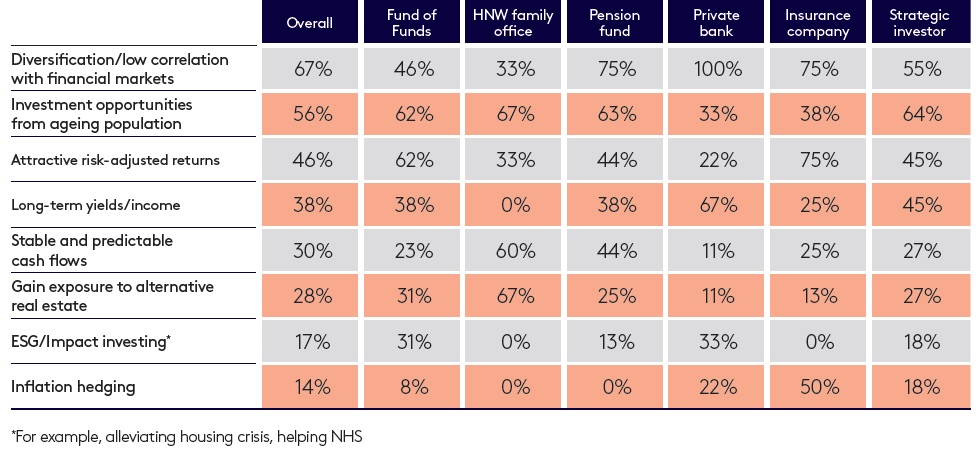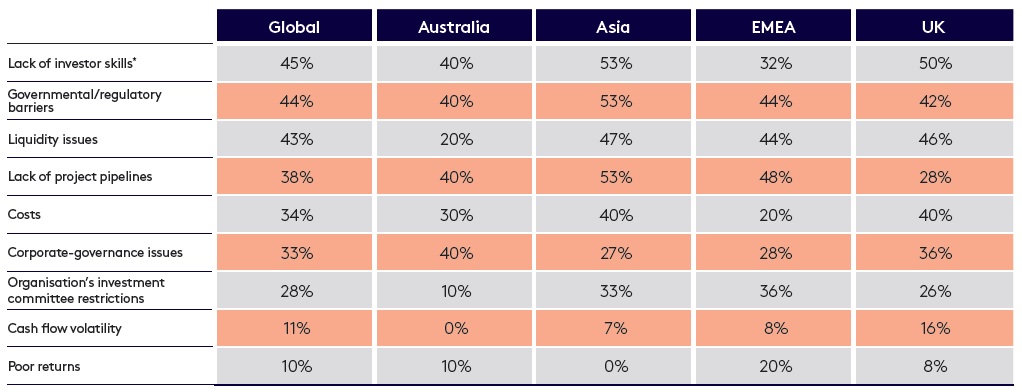More than $200billion will be injected into the global healthcare infrastructure market over the next five years, with the UK one of the most-attractive regions for potential investment.
This is according to new report published by Octopus Group, which quizzed 100 global investors with a combined $6.8trillion in assets, exploring the drivers shaping opportunities in the sector.
It is preferential to fund a steady stream of assets with established and proven operators rather than fund one-off assets
Survey respondents revealed they routinely allocate 6.1% of their investment portfolio to healthcare infrastructure.
And, in the next five years, 37% expect to increase allocations by up to 10%, with insurance companies increasing their allocations more than any other type of investor, with a 4.4% boost.
And the money will be aimed at a number of areas, with 57% considering investing in retirement housing, 53% potentially looking to invest in care homes, and 44% in doctors surgeries.
Retirement housing holds particular appeal to high-net-worth family offices and insurance companies, while care homes are most in demand among family offices and private banks.
Asian responders revealed the highest level of current allocations to healthcare (10.6%) and will invest the most in the sector in the coming years, with around 13.1% being ploughed into the market over the next five years.
And Australian investors plan the biggest increase, from 4.1% currently to 9.4% within five years.
In the UK, 73% of respondents said they would increase allocations and 26% plan to do so by more than 10%.
A few new markets are also opening up, with investors planning to increase their interests in areas such as New Zealand, the Nordic countries, France, and Hong Kong over the coming years.
And, despite 58% of global investors thinking Brexit will have a negative effect on infrastructure over the next 12 months; the UK remains the most-attractive region for future inward investment.
Healthcare infrastructure has captured the attention of institutional investors around the world
The report states: “A combination of diversification and the sector’s low correlation with broader financial markets emerge as the prime drivers for investment in healthcare infrastructure.
“Respondents recognise that returns from healthcare infrastructure are mostly uncorrelated to traditional asset classes and financial markets. And this is becoming increasingly important for investors as they look to recession-proof portfolios amid a volatile investment backdrop.”
The survey shows that 56% of investors cite demographics as another key driver, with increasing life expectancy and declining fertility causing the average age of the global population to increase significantly and putting pressure on housing and healthcare buildings.
“Ageing populations and a lack of good-quality retirement housing, GP surgeries, and care homes to cater to this group have fuelled demand for healthcare infrastructure,” the report reveals.
Investors are also chasing the returns and long-term income these projects provide, with private banks, in particular, driven by this.
Benjamin Davis, chief executive of Octopus Healthcare, said: “The expected end of the bull market, compounded by heightened political risk across the globe, makes alternatives an attractive investment opportunity for investors on the hunt for returns.
“Healthcare infrastructure offers particular opportunities for institutions as changing demographics fuel demand to service a growing elderly population.
“Retirement is taking on a different shape and meaning to previous generations; quality of life is better and the modern-day retiree is active and social.
“For the elderly, care homes suited to the specialist requirements of their residents are crucial.”
But challenges still remain. According to the report, these potential stumbling blocks include a lack of resources and specialist managers; increasing regulations and difficulties making business cases; and a lack of projects and pipeline.

The drivers for healthcare infrastructure investment by investor type
“Healthcare infrastructure is a highly-specialised area requiring specialists with large resources to carry out a range of functions including identifying investment opportunities, undertaking specialist demand/supply due diligence, selecting the best operators, and managing these specialist assets,” says the report.
Healthcare infrastructure offers particular opportunities for institutions as changing demographics fuel demand to service a growing elderly population
“It is also crucial to have good long-term relationships with operators to ensure oversight of an investment.
“It is preferential to fund a steady stream of assets with established and proven operators rather than fund one-off assets.”
It concludes: “Healthcare infrastructure has captured the attention of institutional investors around the world.
“The investment will be crucial to ensuring the ageing population receives the quality housing and care they will need.”

The challenges to investing in healthcare infrastructure by region
